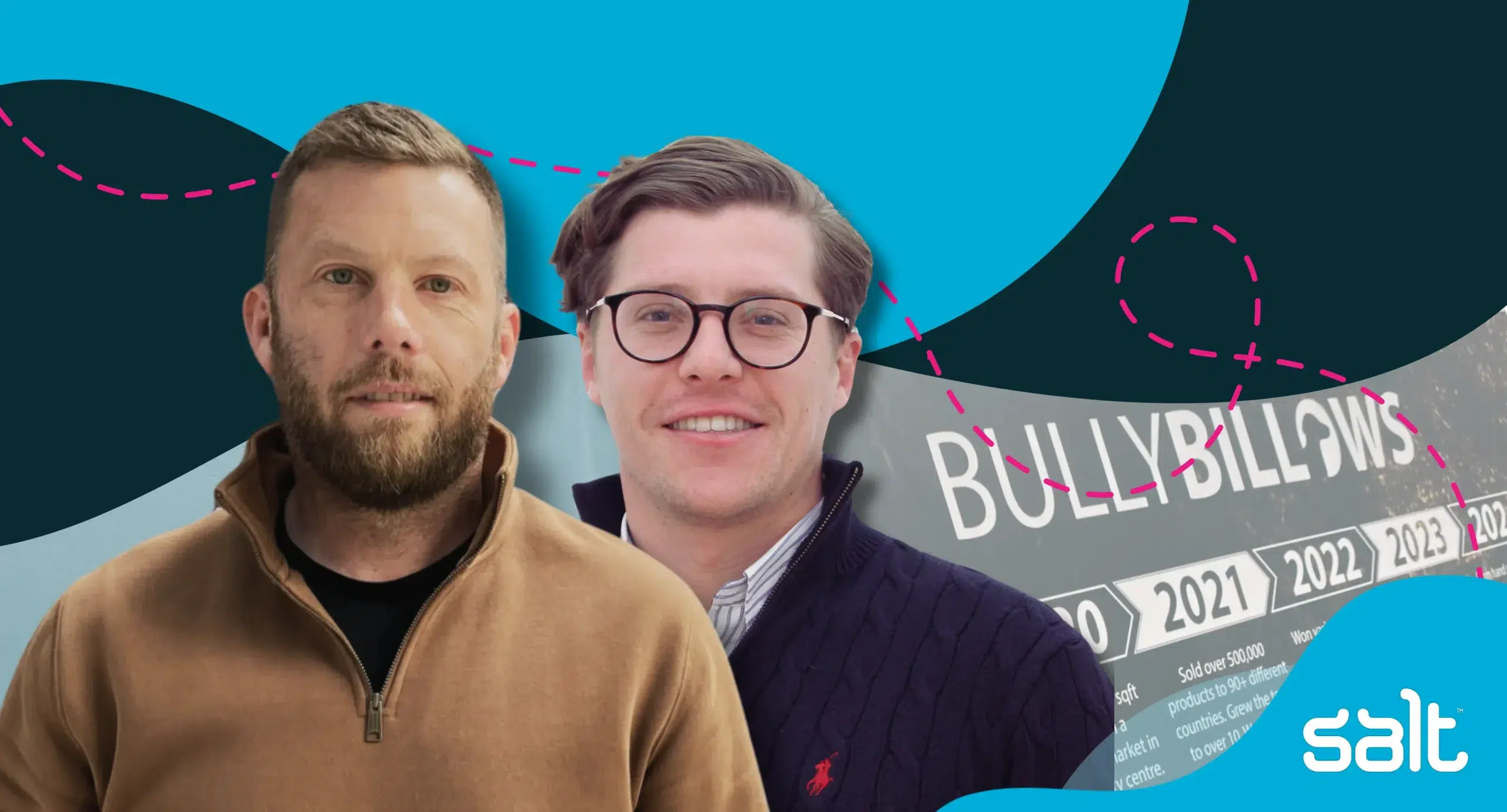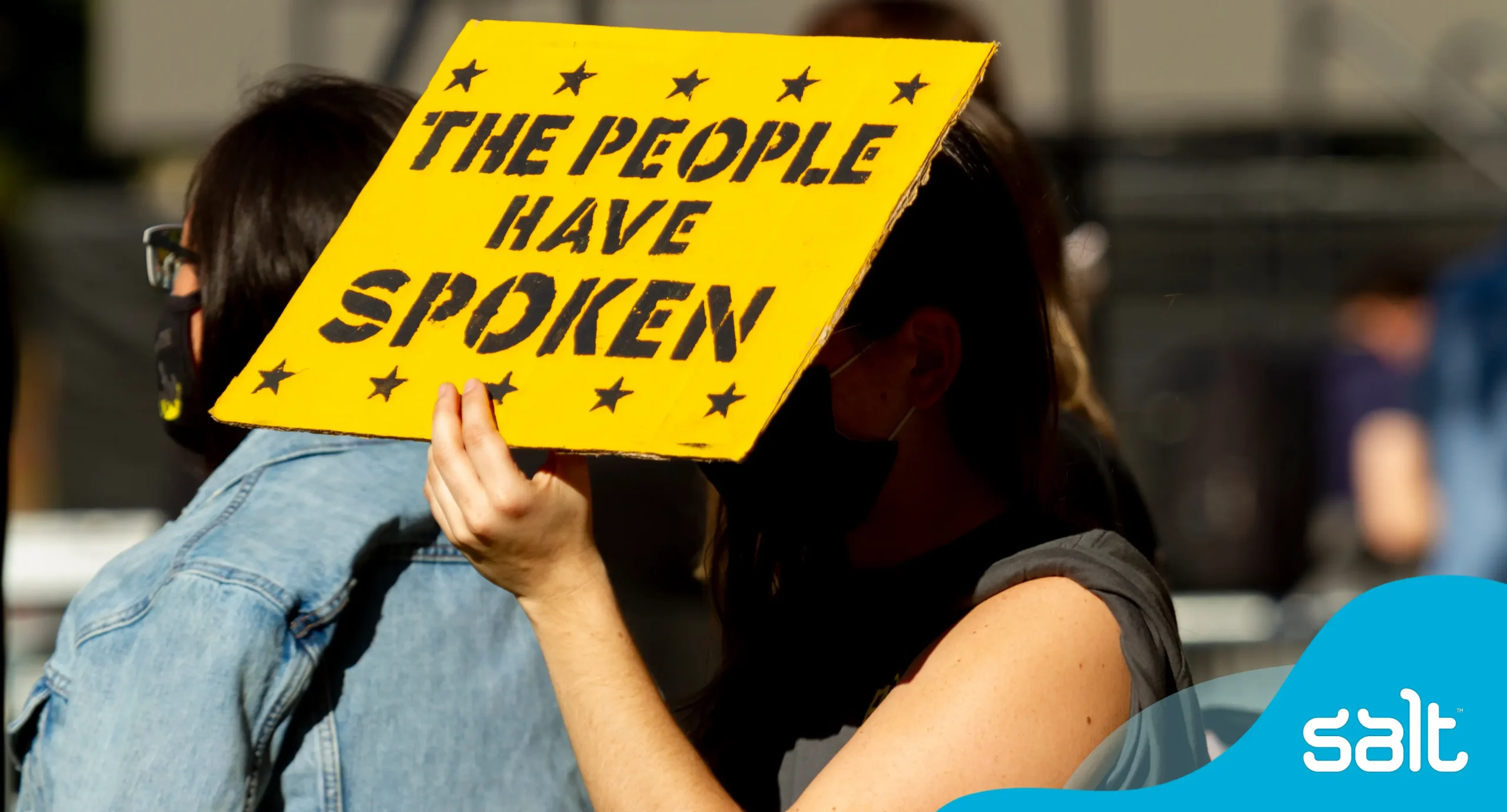
Author: Elliot Dell, CEO Salt.
You don’t meet an algorithm, but it might be deciding your future. Hiring, filtering, scoring, and ranking human potential before a person ever enters the process has some challenges. What began as an efficiency tool is now an invisible gatekeeper. Is it the age of algorithmic recruitment?
AI has become the first interview – and the first filter
Applicant Tracking Systems (ATS), CV scanners, and AI-based psychometrics are becoming embedded in corporate hiring. At scale, it makes sense, technology can process thousands of CVs in minutes, surface “top matches,” and even predict performance.
But what if the algorithm isn’t neutral? What if it never truly understood what makes someone great?
That’s where the danger lies.
Bias hardwired into the system
Researchers like Dr. Joy Buolamwini and Meredith Whittaker have warned us: AI reflects the data it’s trained on. Buolamwini found in her research that AI-powered facial-recognition systems showed higher error rates when identifying darker-skinned women, with rates reaching 34.7%, compared to 0.8% for lighter-skinned men. These disparities indicated potential biases in algorithmic design, where biased training data and incomplete evaluation processes led to unequal technological outcomes based on both gender and skin tone.
If the historical data was biased, favouring men over women, one ethnicity over another, or elite education over lived experience, the machine learns that bias. Then it amplifies it:
- You don’t get seen because the CV parser didn’t like your formatting.
- You get scored lower because you took a career break.
- You get screened out because your name doesn’t “fit the pattern.”
We’ve moved from unconscious bias to encoded bias at scale.
Hiring for potential, not just patterns
The conversation has moved on. It’s no longer about whether AI belongs in hiring, it’s about how we use it, and who’s responsible for the outcomes it drives.
Some companies are starting to use AI in smarter ways. Blending it with behavioural science to create more equitable, human-centred processes. When used well, the technology becomes a tool, not a judge.
But we’re not there yet. I see too often how brilliant people are filtered out by systems that rely on flawed or biased data. The lack of transparency in how these decisions are made is a real risk – not just to candidates, but to businesses trying to build high-performing teams.
That’s why hiring decisions should still be led by people. With AI in the background, not the driver’s seat. Supporting us to look beyond what’s on paper and see the full picture. How someone shows up, their grit, their growth, and their potential.
“What I believe and what we focus on at Salt is human first hiring, data as a guide not a gatekeeper and tech that amplifies potential.”
The future of work should be fair. Let’s build it.
If we want a truly meritocratic system, we need to make sure the Monopoly board isn’t rigged before the game begins. That means questioning the systems that decide who gets seen, who gets through, and who gets left out, often before a human even looks at a profile.
The future of hiring shouldn’t be shaped by invisible algorithms alone. It should be led by people, driven by purpose, and open to potential. Wherever it comes from.
Hiring? Salt connects you to outstanding top talent worldwide
If you’re interested in hearing about how Salt’s top talent recruitment experts around the world can help with your hiring right now, get in touch. Click below to contact the closest Salt team to you!
- Australia
- Canada
- Belgium
- Europe
- Hong Kong
- Malaysia
- Middle East and North Africa
- Netherlands
- New Zealand
- Singapore
- South Africa
- United Kingdom
- United States
Keep up with Salt’s top talent job market insights and hiring advice! You can keep in the loop by following us on. LinkedIn, YouTube, Facebook, Instagram, and Spotify.


